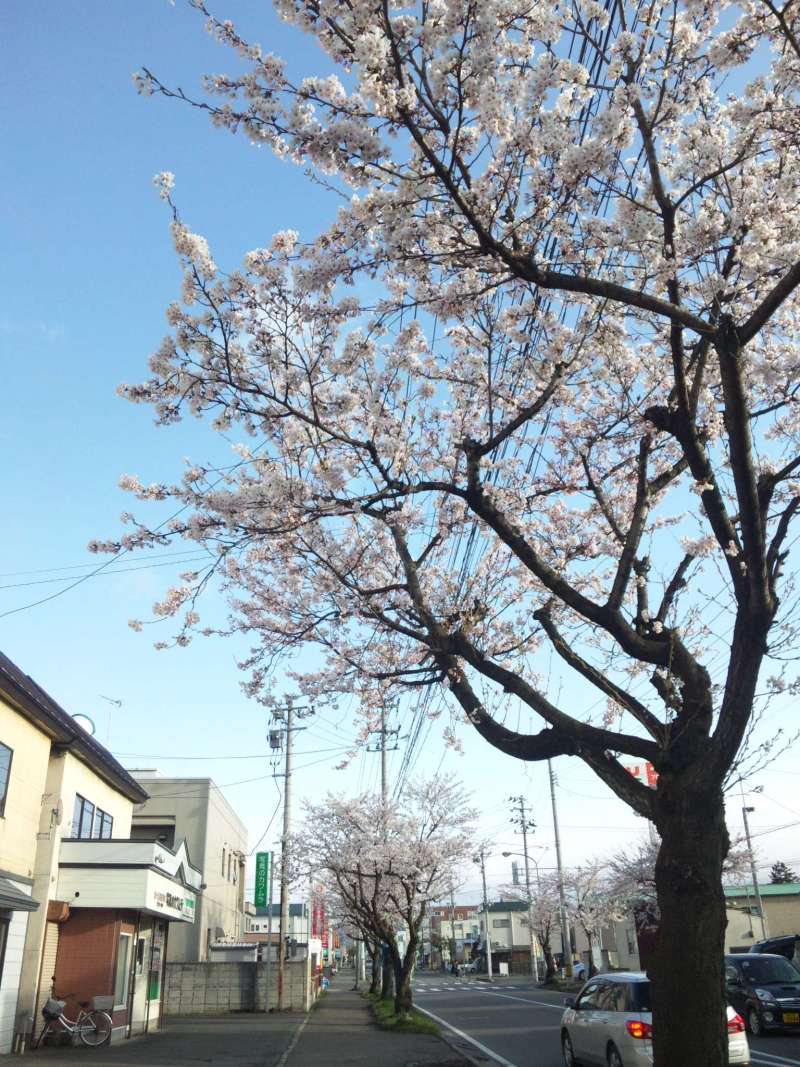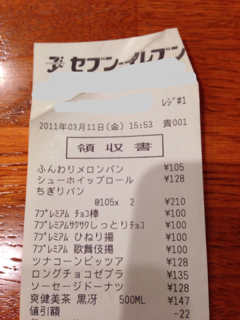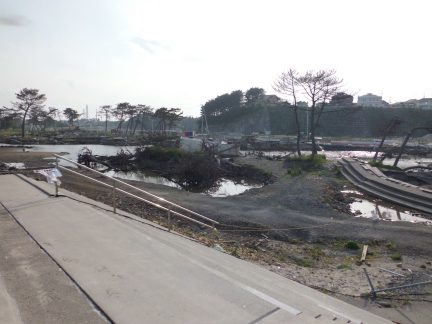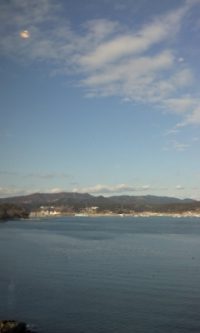“Sexual Minority Disaster Victim”
Written by: namihei
FtX transgender person in their 30s
Living in Tagajo, Miyagi Prefecture
Lives together with a partner
Before the disaster did not have any dealings with the sexual minority community, and also led a lifestyle removed from society in general.
Still in the closet, but keeps in touch with people of sexual minority groups over the internet.
▽About the glossary of terms
March 11, 2011.
Since that day I have gone to many places, met many people, and done many things.
I have shoveled mud, carried out furniture soaked by seawater, gathered and distributed supplies, taken pictures and transmitted information, and taken part in the sexual minority community which I had avoided for a long time. Today I am writing this piece.
If I spoke to the me from before that day—the me who retreated into my apartment—I’m sure I wouldn't believe all the things that I’ve done since.
That day...well, the ground shook long and hard.
My apartment lost electricity right away, and the computer and printer I had been working on fell to the floor. The first thing I did was hide the books related to sexual minorities which I had in my room.
Miyagi Prefecture is in a region which has many earthquakes, and even a relatively large earthquake is not that surprising. But I knew that a quake which continued for more than two minutes was not something to be taken lightly.
I immediately thought, “Someone might come into my room. I no longer have privacy. No one will be concerned with private issues. Things outside are probably pretty bad.” As the aftershocks continued I put my sexual minority books into an envelope, sealed it with tape, and hid it on a shelf. I don’t know why I thought someone would come into my room, but curiously, in the end I did in fact have to let people in.
I went to pick up my partner’s family (two adults, two primary school children) at the evacuation center and our cohabitation began.
A disaster victim living in the disaster area. And a person of a sexual minority.
It was not as though my home had been swept away by the tsunami, nor had I lost any relatives, and even though I belong to a sexual minority, I am still in the closet and so do not need any particular support...
Although our inconvenient lifestyle continued with no running water and food procurement beyond our control, I do not think that we were “disaster victims”, nor that I was of a “sexual minority”. Of course I was also not a “member of a sexual minority in the disaster area”.
I did not bathe in the baths set up by the Self-Defense Force, nor did I go to the public baths, but then I don’t bathe in the shared baths of an onsen or a bathhouse even in normal times.
When applying to volunteer I had to fill in the “Gender” field, and every time we had to do something out in the field they would separate us into men and women. This was not a system only for use in emergencies, but an everyday system. I did not think it was an issue to be raised while we were in the middle of an emergency, but most of all I did not have the emotional wherewithal to do so.
More than anything, I was focused on doing something about the town in front of my face which had been reduced to a quagmire. The damage to my hometown 50 km away from the coast had been significant. “Once we clean up the town I live in now, we can start cleaning up my hometown. If we clean it up, will everything just be gone...?” My head was full of endless thoughts about what the future had in store, and I decided to forget about my own sexuality for the time being.
Or so I thought.
As soon as I get involved in society, much dissatisfaction and inconvenience follows. Before I knew it, I was posting about all sorts of injustices and discontent on the internet.
Although I claimed not to be a sexual minority disaster victim, I was interviewed by the newspaper and asked to speak in front of large crowds. The people around me were not buying my story.
I did not know any other members of sexual minorities, and I had absolutely no knowledge relating to sexuality, so I didn't know what to do. I’m ashamed to say that I was not able to deal well with any of it.
I did not have the words to express myself, and I was not able to organize my thoughts about what was causing me discomfort or why social systems made it hard to live my life. I didn’t even have the words or ideas to help me structure my thoughts.
One newspaper article described me as “a woman with Gender Identity Disorder”. While I didn’t think that was quite right, I didn’t know how to convey that feeling to someone, and so in the end I let it be.
I really would have preferred if they had at least written, “N-san, who has GID.”
I was frustrated and sad that I was not able to protect myself. Thereafter I studied about sexual minorities and actively made contact with the sexual minority community. I also participated in other communities as a person of a sexual minority.
When I performed internet searches, I was surprised at how many words there are relating to sexuality which I had never heard before. By delving deeply into the topic and finding these new words and their meanings, I was finally able to organize my own thoughts.
Now that I have more knowledge and am able to think about things, I can see that although I denied it, from that day on I was in fact a “member of a sexual minority in the disaster area”.
I had no bonds to other people, no knowledge. I was a lone, ignorant member of a sexual minority in the disaster area.
Not having any ties means not having any lifelines.
I did not seek ties with anyone, which means that if I had suffered a greater disaster I would have had no one to turn to for aid. This time the people I connected with on the internet lent me a hand, but that is a thin, tenuous lifeline. Luckily, I suffered only a small disaster this time and that one lifeline was enough.
Having no knowledge means being unable to protect oneself or those one loves. I am not saying you have to go out and make friends right now, but I hope that you will at least form bonds somewhere. I wish that you will gain the knowledge to protect yourself and those you love. Even if you don’t need the information right now, it may be useful to someone someday. It may even be useful to you.
A lifeline is not something that you search for after something happens, and you never know which end of the line will require aid and which will provide it. When the time comes, both sides just need to grab on and hold tight to their end.
While searching for as many lifelines as possible, I traveled from place to place as a member of a sexual minority, trying to find a way to overcome the pain of not being able to do more than watch in an emergency. And today I write this article.
I am not a disaster victim, but perhaps I can do something as a member of a sexual minority in the disaster area. If another disaster were to happen somewhere, how many lifelines would I be able to hold on to? It was mere happenstance that I lived that day. My today may be a tomorrow that someone else wanted to live to see. I must go on living, and I want to go on living. But continuing to live in this society is a bit tiresome. I have quietly begun building a community and raising public awareness of sexual minorities.
I hope to be connected to you all one day!
In closing,
I have received so much support from people of sexual minorities all over the country. And of course from other people as well.
Some sent me supplies, some helped me transmit information, and some even came to visit me in Miyagi Prefecture.
I would like to thank all those people here. You have my deepest gratitude!
I now have a new goal of going to visit all of you in the future.
May you all have more happiness in your lives!
Contributed: October 2013.
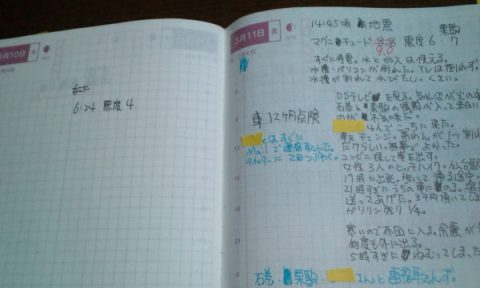
Journal from March 11
March 11, 2011
I don't usually keep a journal. I started writing to try to calm myself. These are the entries from the day before and the day of the earthquake. Looking at it now, I have no idea what I was writing about.
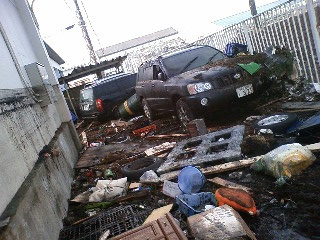
Tagajo, March 15
March 15, 2011
Tagajo, Miyagi Prefecture. The water finally subsided. There were still dead bodies inside the cars which had been swept up and deposited here and there. It was very scary and I didn't want to walk outside, but I had heard that empty homes were being burgled frequently, so I went to an acquaintance’s house to get a futon and food supplies. I wasn’t able to take pictures for a while after this.
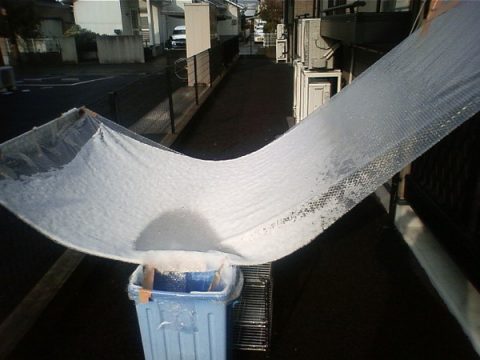
March 16, 2011
We did not have enough water for washing and the people I was living with were becoming neurotic about collecting water. We spread out a sheet of bubble wrap packing about the size of a bed sheet, and as we tried to collect rain water it began to snow. The white stuff is snow. Careful to collect every flake, we melted the snow to use as washing water. It was enough for two flushes of the toilet.
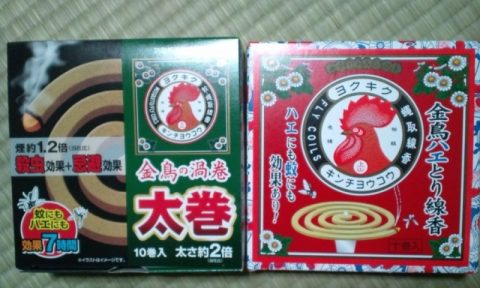
July 26, 2011
Ishinomaki, Miyagi Prefecture. I participated in the “Disaster Victims Sending Supplies to Disaster Victims! Project”, which was run mainly by high school students. Many people supported it. As the summer approached, flies began to spawn in great numbers from areas which had not been cleaned up and from the mountains of debris. The problem became quite severe, so we collected mosquito coils from across the country and sent them to those who needed them.
■namihei’s activities:
Tenden Miyagi on twitter:
https://twitter.com/tendenMIYAGI
Tenden Miyagi Blog:
http://namihei27.blog71.fc2.com/
■About terminology:
In Rainbow Archive Tohoku’s “Memoirs”, there are many terms related to sexuality which may be unfamiliar. The meaning of each term is given in the broadest sense in the glossary linked below.
Rainbow Archive Tohoku glossary of terms
For more information, please visit the Sexualities and Human Rights Network ESTO or see other websites and books related to sexuality.
■About Rainbow Archive Tohoku
Our group gathers, records, and transmits direct accounts from LGBT people and people of various sexualities. By widely asserting the existence of these overlooked minorities in local communities, we hope to help people better understand their differences and find respect for each other, to create a more harmonious society for all.
Our organization was founded in June 2013 by four groups operating out of Sendai in Miyagi Prefecture: Tohoku HIV Communications, Yarokko, Anego, and ♀×♀ Ochakko Nomikai, Sendai.
Contact: ochakkonomi@gmail.com (♀×♀ Ochakko Nomikai, Sendai)
*The rainbow is used all over the world as a symbol of sexual diversity.
| Recorded on | 11 to July 26 March , 2011 | |
|---|---|---|
| Recorded by | namihei | |
| Recorded at | Tagajo, Miyagi Prefecture | |
| Series | ||
| Keywords |








